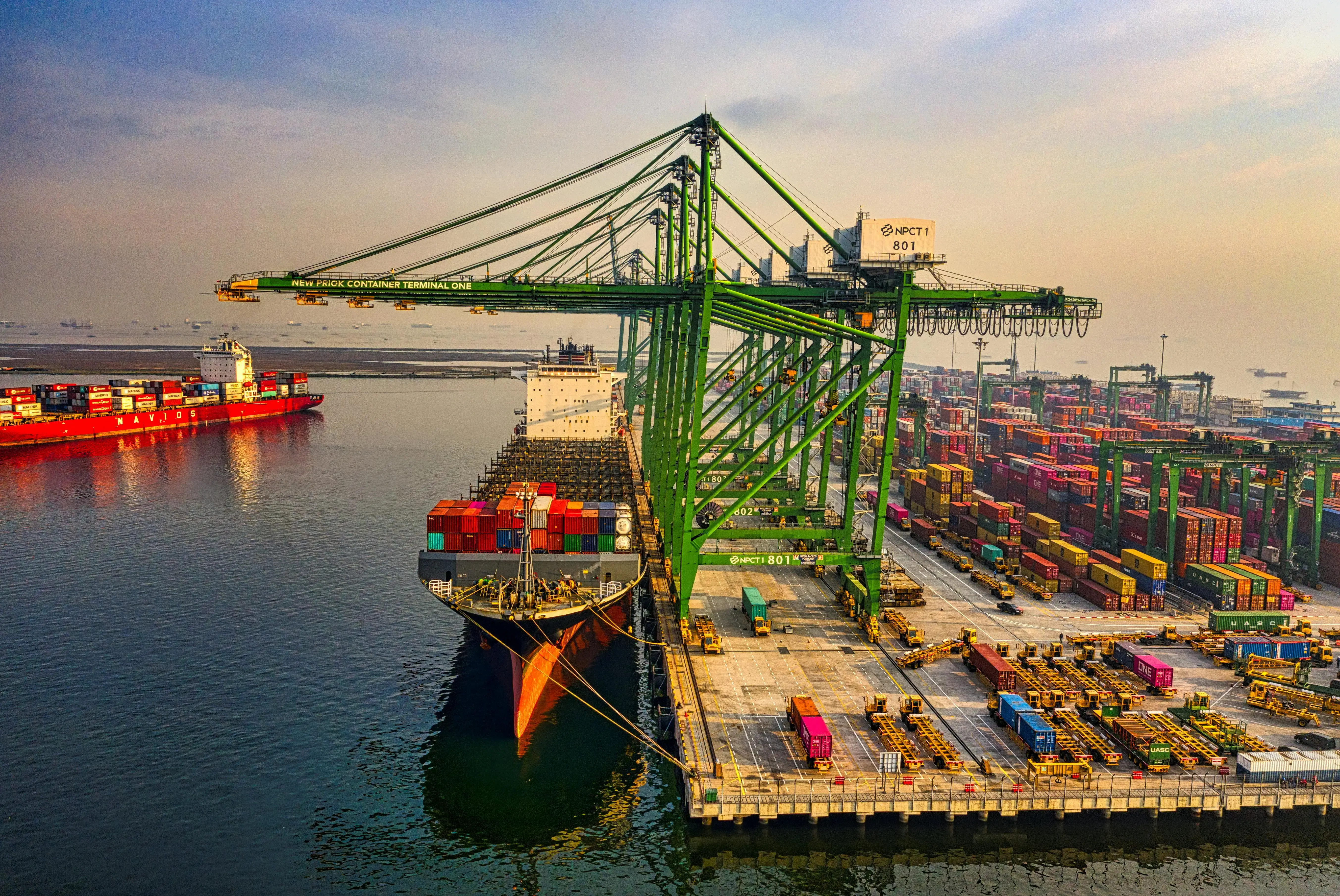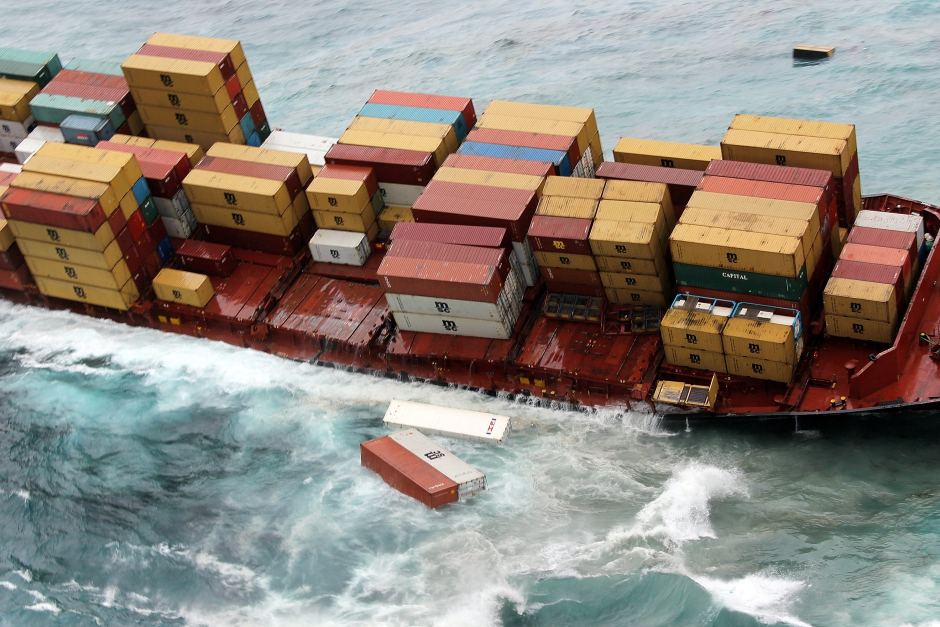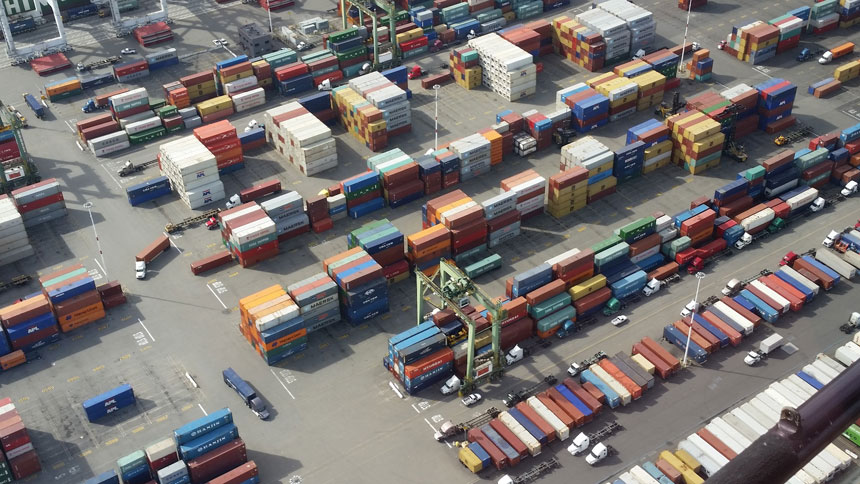Avoiding Delays At Sydney Port: Common Mistakes & Prevention Guide
Sydney Port serves as Australia's primary gateway for vehicle imports, processing thousands of containers monthly through state-of-the-art facilities. However, common documentation and procedural errors can cause significant delays, storage fees, and complications for importers. Understanding these pitfalls and implementing preventive measures ensures smooth processing and timely delivery of your imported vehicle.
At West Coast Shipping, we specialize in navigating Sydney Port's complex requirements, helping customers avoid costly delays while ensuring full compliance with Australian import regulations.
Shipping a vehicle through Sydney Port requires understanding Australia’s import regulations and procedures. For comprehensive guidance, visit our full US-to-Australia car shipping guide covering every step of the import process.
Understanding Sydney Port Vehicle Processing
Sydney Port's vehicle processing infrastructure handles both standard and specialized vehicle imports through dedicated facilities designed for automotive cargo.
Port Infrastructure and Facilities
Sydney Port Vehicle Facilities:
-
Container Terminals: Modern facilities handling containerized vehicle imports with advanced crane systems
-
Inspection Areas: Dedicated spaces for quarantine and customs inspections
-
Storage Facilities: Secure storage for vehicles awaiting clearance or collection
-
Compliance Workshops: Note that comprehensive ADR compliance workshops are usually offsite or outsourced rather than directly on terminal premises
-
Documentation Centers: Streamlined processing for import paperwork and approvals
Current Processing Volumes
Sydney Port processes approximately 60% of Australia's vehicle imports, making it the busiest automotive gateway in the country. This high volume, while providing excellent infrastructure and services, can create bottlenecks during peak periods or when complications arise.
Most Common Documentation Errors
Documentation mistakes represent the leading cause of delays at Sydney Port, often resulting from incomplete or incorrect paperwork submission.
Missing Vehicle Import Approval (VIA)
Arriving vehicles without valid VIA cause immediate detention and cannot proceed through customs until proper authorization is obtained.
VIA-Related Delays:
-
Expired Approvals: VIA documents that have exceeded their validity period
-
Incorrect Vehicle Specifications: Mismatched VIA details and actual vehicle specifications
-
Missing Modifications: VIA not updated to reflect vehicle changes or repairs
-
Documentation Gaps: Incomplete VIA applications lacking required supporting documents
Incorrect Vehicle Specifications
Mismatched documentation and actual vehicle specifications trigger enhanced inspection and verification procedures.
Common Specification Errors:
-
Engine Details: Incorrect engine size, type, or modification information
-
VIN Discrepancies: Vehicle identification numbers not matching across all documents
-
Color and Options: Inaccurate description of vehicle color, trim level, or equipment
-
Year and Model: Confusion between model years and manufacturing dates
-
Modification Documentation: Undisclosed or improperly documented vehicle modifications
Commercial Invoice Problems
Incomplete or inaccurate commercial invoices delay customs valuation and duty assessment procedures.
Invoice-Related Issues:
-
Missing Purchase Details: Insufficient information about transaction terms and conditions
-
Currency Errors: Incorrect exchange rates or currency designations (note: Australian Customs uses published exchange rates at time of entry, not bank rates)
-
Value Disputes: Declared values significantly different from market assessments
-
Seller Information: Incomplete or inaccurate seller identification and contact details
Quarantine and Biosecurity Compliance Issues
Australia's strict biosecurity requirements cause frequent delays when vehicles fail to meet cleaning and inspection standards.
Common Biosecurity Violations
Inadequate cleaning represents the most frequent biosecurity issue affecting imported vehicles.
Typical Contamination Problems:
-
Soil and Dirt: Foreign soil attached to tires, wheel wells, or undercarriage components
-
Plant Material: Seeds, leaves, or organic matter in vehicle interiors or exterior crevices
-
Food Items: Forgotten food packages, wrappers, or organic materials in compartments
-
Animal Products: Leather items, fur, or other animal-derived materials not properly declared
-
Insects and Pests: Live or dead insects found during inspection procedures
Enhanced Cleaning Requirements
Professional pre-shipping cleaning significantly reduces biosecurity delays and ensures compliance with Australian standards.
Comprehensive Cleaning Standards:
-
Interior Deep Cleaning: Thorough vacuuming and cleaning of all interior surfaces, carpets, and compartments
-
Exterior Pressure Washing: Complete removal of dirt, mud, and organic matter from exterior surfaces
-
Undercarriage Cleaning: Professional steam cleaning of chassis, suspension, and drivetrain components
-
Tire and Wheel Cleaning: Removal of embedded soil, stones, and organic materials from tire treads
-
Engine Bay Sanitization: Cleaning and degreasing of engine compartment and accessible components
Australian Design Rules (ADR) Compliance Delays
Non-compliance with Australian Design Rules creates significant delays and may prevent vehicle registration.
Common ADR Compliance Issues
Vehicles failing to meet Australian safety and emissions standards require modifications before clearance.
Frequent ADR Violations:
-
Lighting Systems: Non-compliant headlights, taillights, or reflector configurations
-
Safety Equipment: Missing or non-standard seatbelts, airbags, or child restraint anchors
-
Emissions Controls: Inadequate or removed emissions control systems
-
Speedometer Compliance: Non-metric speedometers requiring conversion or replacement
-
Mirror Requirements: Insufficient or improperly positioned mirrors for Australian standards
Pre-Arrival Compliance Planning
Advance planning for ADR compliance minimizes delays and reduces modification costs. Most ADR modifications are completed at certified offsite workshops rather than on port premises.
Compliance Preparation Strategies:
-
Professional Assessment: Expert evaluation of ADR requirements before shipping
-
Modification Planning: Advance arrangement for required compliance work at certified workshops
-
Parts Sourcing: Pre-ordering necessary compliance components
-
Workshop Coordination: Scheduling with authorized offsite compliance facilities
-
Cost Budgeting: Realistic assessment of compliance expenses
Container Shipping Considerations
Personal Items in Containers
While personal items in containers are generally discouraged due to customs inspection complexity, small declared items may be allowed in practice if properly documented.
Personal Items Guidelines:
-
Declaration Requirements: All personal items must be properly declared on customs forms
-
Inspection Complications: Personal items can complicate customs inspections and cause delays
-
Limited Allowances: Only small, non-valuable personal items typically permitted
-
Professional Advice: Consult with shipping professionals before including personal items
Port Congestion and External Factors
External factors beyond importer control can cause significant delays at Sydney Port.
Industrial Action and Strike Risks
Port industrial actions have occurred in recent years (2022-2024), making strike risk a legitimate concern for importers planning vehicle shipments.
Strike-Related Impacts:
-
Vessel Diversions: Ships redirected to alternate ports causing scheduling complications
-
Processing Backlogs: Accumulated containers requiring extended processing time
-
Storage Congestion: Limited storage space due to delayed vehicle collection
-
Cost Increases: Enhanced storage and handling fees during disruption periods
Seasonal Congestion Patterns
Peak shipping seasons create bottlenecks that affect processing times and storage costs.
High-Volume Periods:
-
End of Year Rush: December-January peak shipping period
-
Post-Holiday Backlog: Processing delays following holiday periods
-
Weather Disruptions: Severe weather conditions impacting port operations
Storage Fees and Cost Management
Understanding storage fee structures helps manage costs during processing delays.
Storage Fee Structure:
-
Free Storage Period: Typically 3-5 business days of free storage after arrival
-
Daily Storage Rates: AUD $100-250 per day depending on terminal and vehicle type
-
Demurrage Charges: Additional fees for delayed container return
-
Extended Storage: Higher rates for long-term storage exceeding initial periods
Professional Import Services
West Coast Shipping's Sydney Port Expertise
Our specialized Sydney Port experience ensures optimal results for vehicle imports while minimizing delay risks.
Port-Specific Services:
-
Documentation Management: Expert preparation of all Sydney Port requirements
-
Customs Representation: Experienced advocacy through Australian Border Force procedures
-
Quarantine Compliance: Professional preparation for biosecurity requirements
-
Port Coordination: Direct liaison with Sydney Port authorities and service providers
-
Problem Resolution: Professional handling of complications during clearance
For comprehensive information about Australian vehicle import regulations and procedures, visit our detailed guide on shipping a car to Australia from the US covering all aspects of the import process.
Ready to Avoid Delays at Sydney Port?
Sydney Port vehicle imports require professional guidance to navigate complex regulations and prevent costly delays. Whether you're importing a single vehicle or managing multiple shipments, West Coast Shipping provides expert support throughout the entire Sydney Port clearance process.
Our experience with Sydney Port procedures ensures your vehicle import proceeds smoothly while meeting all Australian regulatory requirements. From documentation preparation through final delivery, we handle every detail of your Sydney Port import with professional excellence.
Contact us today for expert consultation on importing your vehicle through Sydney Port. From comprehensive Australia shipping services to specialized port guidance, we provide complete support for your Australian vehicle import needs.
Need additional guidance on navigating Sydney Port imports? Visit our comprehensive US-to-Australia vehicle shipping guide for full details on regulatory compliance and efficient clearance procedures.
Get Your Sydney Port Import Quote Today
You May Also Like
These Related Stories

Avoiding Delays At Tema Port: Common Mistakes And How To Prevent Them

Cargo Damage Protection Explained

-093789-edited.png?width=220&height=79&name=wcs_final_logo_(1)-093789-edited.png)
